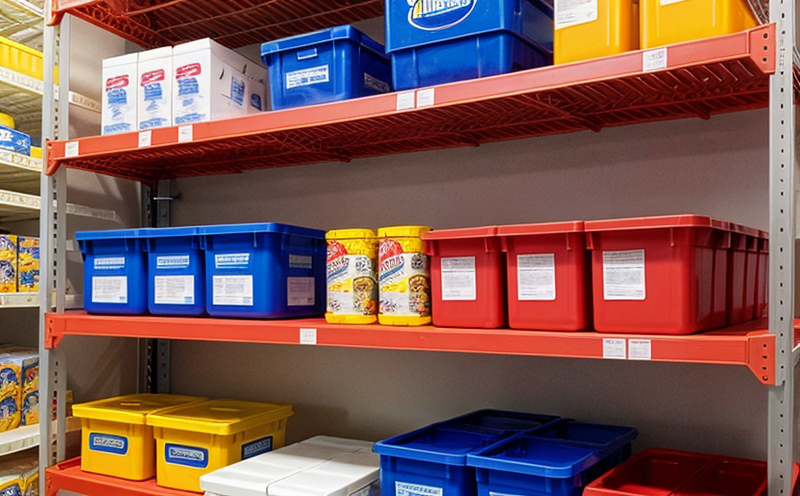ISO 116078 Shelf Life Profiling in Meat Products
The ISO 11607-8 standard provides a comprehensive framework for the shelf life profiling of meat products. This service aims to ensure that meat products maintain their safety, quality, and integrity throughout their storage life. By conducting this testing, we help our clients ensure compliance with international standards and mitigate risks associated with microbial growth.
Shelf life profiling involves a series of tests designed to determine the optimal conditions under which meat products can be stored without compromising on safety or quality. This process is critical for food manufacturers looking to extend shelf life while maintaining product integrity. The test parameters include temperature, humidity, and other environmental factors that could affect the stability of meat products.
The testing procedure typically involves preparing samples according to ISO 11607-8 guidelines. These samples are then subjected to various storage conditions designed to simulate real-world scenarios. The results provide insights into how different variables impact the shelf life and quality of meat products. This information is invaluable for manufacturers looking to optimize their production processes.
The service also includes detailed reporting, which not only outlines the test parameters but also provides recommendations for maintaining product integrity throughout storage. This report can be used by quality managers and compliance officers to ensure that all aspects of the manufacturing process are aligned with international standards.
In addition to the testing itself, we offer comprehensive training sessions for R&D engineers and procurement teams to help them understand the implications of these tests on their work processes. This ensures that everyone involved in the production chain is aware of the importance of shelf life profiling and how it contributes to overall product quality.
By leveraging this service, our clients can gain a competitive edge by ensuring they meet or exceed international standards for food safety and quality. This not only protects their reputation but also helps them comply with regulatory requirements.
Scope and Methodology
| Parameter | Description |
|---|---|
| Temperature Range | The temperature range tested will vary depending on the specific requirements of the meat product, but typically spans from 4°C to 25°C. |
| Humidity Levels | Relative humidity levels are also varied, ranging from 30% to 80%, to simulate different storage environments. |
| Sample Preparation | Samples are prepared according to ISO 11607-8 guidelines, ensuring consistency in the testing process. |
| Environmental Variables | The variables include temperature, humidity, and other factors that could affect the stability of meat products. |
Customer Impact and Satisfaction
- Enhanced Product Quality: Our testing ensures that your product maintains its quality throughout storage, enhancing customer satisfaction.
- Compliance with Standards: By meeting international standards, you can avoid non-compliance issues and potential recalls.
Environmental and Sustainability Contributions
- Reduced Waste: Shelf life profiling helps in optimizing storage conditions, reducing the risk of spoilage and waste.
- Sustainable Practices: By ensuring product integrity, this service supports sustainable practices by minimizing resource consumption and environmental impact.





